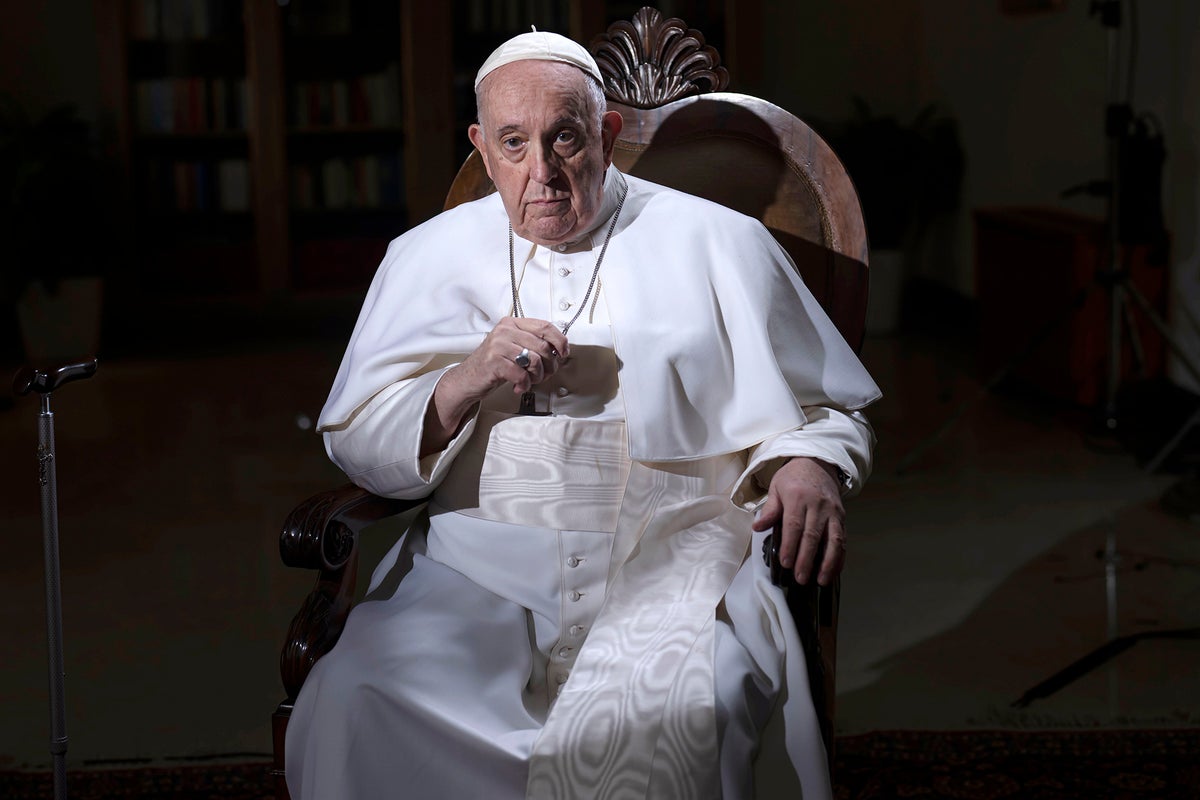ARTICLE AD BOX
Canadian Ted Kotcheff, whose six-decade career as film and television director included helming the first instalments of two hit movie franchises in the 1980s, died Thursday at age 94, his son confirmed to CBC News.
"He died of old age, peacefully, and surrounded by love ones," his son Thomas said in a statement Friday, adding his father had been living full time in Nuevo Vallarta, Mexico, with his wife Laifun Chung.
During his career Kotcheff directed stars such as Jane Fonda, Burt Reynolds, Gregory Peck and Kathleen Turner, landing Hollywood jobs after years spent directing productions in Britain, Australia and Israel. In Canada, he directed two adaptations of novels by his former roommate Mordecai Richler — The Apprenticeship of Duddy Kravitz and Joshua Then and Now, both of which won domestic film awards.
But he was best known for his work in the 1980s. He directed 1982's First Blood, the first of what would be five motion pictures featuring troubled Vietnam vet John Rambo, and seven years later was behind the lens for the improbable hit Weekend at Bernie's, which saw two hapless underlings cart around the dead body of their boss as party guests carried on unawares.
"No matter what part of the world I travel to, there are two films of mine that seemingly everyone has seen: First Blood and Weekend at Bernie's," he wrote in his 2017 memoir, Director's Cut: My Life in Film.
But Kotcheff, preferring to explore new ideas, opted not to cash in by participating in subsequent movies featuring the Rambo and Weekend at Bernie's characters.
"Sequels are not my thing, because I do not like to repeat myself," he wrote in Director's Cut.
WATCH | Kotcheff and Richler's creative partnership: Ted Kotcheff and Mordecai Richler's creative partnership
In later years, Kotcheff served as executive producer for nearly 300 episodes of one of TV's longest-running shows, Law & Order: Special Victim's Unit, directing seven episodes of the NBC series.
SVU star Mariska Hargitay described Kotcheff in the foreword of his memoir as "a man whose charisma came from an unfettered appetite for life."
"Ted speaks the truth, directs the truth, pulls the truth out of all the actors he works with," said Hargitay. "You can see that in the performances he directed on our show and in all his films."
He was born William Theodore Kotcheff on April 7, 1931 in Toronto to a Macedonian mother and Bulgarian father whose family name had been Tchotseff. He recalled living in a rowhouse without a furnace in Toronto's Cabbagetown neighbourhood, with trips to the theatre a respite to a hardscrabbled upbringing.
"I was mesmerized by what I saw on the big screen," he wrote in Director's Cut.
Got his start at CBC
After attending the University of Toronto, he landed a job as a stagehand at the Canadian Broadcasting Corporation, graduating to roles like scriptwriting, editing and ultimately directing on shows like General Motors Theatre and On Camera.
"Personally in 1952 I had no opinion on the future of television. I just wanted a job in storytelling," he would later say.
Wanting to stretch his wings further, Kotcheff landed in Europe and while there eventually met fellow expat Richler, calling it "one of the most important relationships of my life." He would direct a number of prestige dramas on British television, winning a BAFTA award for one such production in 1971.
During this period he wed the British actress Sylvia Kay, the couple welcoming three children in their decade-long marriage.
After directing the 1971 Australian thriller Wake in Fright, which still appears on some cult film lists, Kotcheff's interpretation of Duddy Kravitz was chosen as top film in the 1974 Canadian Film Awards.
"Every day was a revelatory experience with Richard [Dreyfuss] ... he was always in high spirits, full of amusement," Kotcheff later wrote.
The film was nominated as best foreign film at the Golden Globes and Kotcheff began attracting attention in the U.S., leading to his most sustained period of Hollywood work.
Fun with Dick and Jane starts streak of hit films
Two films with George Segal as lead — Fun with Dick and Jane (co-starring Fonda) and Who Is Killing the Great Chefs of Europe? — were followed by what was viewed as one of the first realistic depictions about the cutthroat business and physical toll of professional football, 1979's North Dallas Forty with Nick Nolte.
"Because I wasn't a football fan, I didn't view the sport with any reverence, a plus when it came to showing the unvarnished truth," said Kotcheff.
First Blood followed, a film nearly a decade in the making. Based on a 1972 novel by Canadian writer David Morrell, in Hollywood fashion the project had several other names attached as actor and director before Kotcheff and Sylvester Stallone ultimately collaborated. In addition, Kirk Douglas was fired after shooting had started, replaced by Richard Crenna.
"It's fun to remember, now that Rambo is such a household word, that First Blood was independently produced and no one wanted to distribute it," Kotcheff told the Globe and Mail in 1989.
The film was shot in several locations in British Columbia — subbing for the story's Washington state setting. It grossed an estimated $125 million US at the box office around the world after its November 1982 release.
He would praise Stallone — who broke four ribs during production — as being "deeply committed" to the role, but Kotcheff had little time for the Rambo sequels.
"The sequels have been derivative ripoffs that come close to contradicting the original idea of Rambo being a kind of Frankenstein monster," Kotcheff told the Toronto Star in 1989.
After directing and producing another Vietnam-theme film, Uncommon Valor with Gene Hackman and Patrick Swayze, Kotcheff's Joshua Then and Now would go on to win five Genie awards, though it was denied in the best film and director categories. Joshua reunited Kotcheff with James Woods, one of the cast members in his 1982 drama about a cult, Split Image.
Kotcheff and Richler, who wrote the screenplay, appeared together on CBC's Midday to promote the film.
"It was a very difficult novel to adapt, went through about 19 drafts, [and] we finally succeeded in getting a wonderful screenplay," said Kotcheff.
Turning back to Hollywood, Switching Channels (1988) was not received so warmly by critics and moviegoers, resulting in Kotcheff's words, "apple juice rather than champagne" due in part to friction between Reynolds and Turner.
Kotcheff would have a commercial hit on his hands in 1989 with Weekend at Bernie's. He remembered a set with much camaraderie, in contrast to the movie's mostly selfish characters.
"The film's satirical edge about human behaviour connected with audiences," he wrote in 2017, enjoying the fact the Bernie Lomax memes pop up from time to time on social media.
Before landing with the hit offshoot of the Law & Order franchise for his 1999-2012 tenure there, Kotcheff spent much of the 1990s professionally directing TV movies, working with the likes of Charles Bronson, Dennis Farina and Roma Downey.
Kotcheff's survivors also include his second wife, Laifun, and their two children.

 1 week ago
12
1 week ago
12








 English (US) ·
English (US) ·